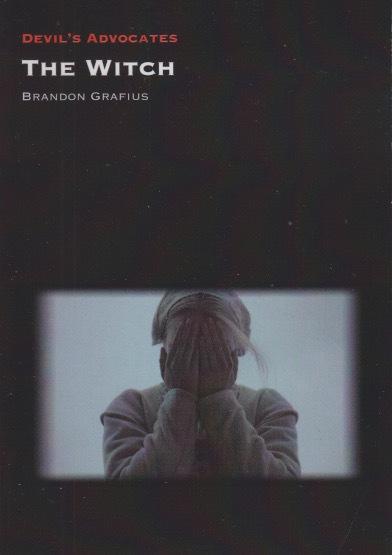
Good things often come in small packages. I’ve read a couple of Brandon Grafius’ books before, and I’ve had The Witch on my reading list since I found out about it. This is one of those books that benefits from knowing the raison d’être of the series of which it’s a part. Devil’s Advocates is published by Auteur Publishing as a set of brief books on specific horror films. If I didn’t have other financial obligations I could see myself purchasing the entire series. Fortunately this volume was on a film I’ve seen (horror films have become so prolific that I can’t afford to see all of those I’d like either). The Witch is a provocative movie, having gained critical acclaim as well as box office success. It’s also a complex film.
Grafius ably takes us through the Puritan background that’s necessary to understand the social, and familial tensions that make this movie work. Robert Eggers is a director known for his meticulous attention to period detail. Even while weaving the fantastic into his stories, the plots are entirely believable. Grafius has a solid grasp on how religion and horror interact. That’s on full display here. Looking at The Witch as an exploration of folk horror, he illustrates the importance of the landscape to the tale as well as how isolation sets a family off against one another. The Puritan religion creates a monster, as it were. Grafius doesn’t shy away from the misogyny behind the developing idea of the witch, either. His explanations of—not excuses for—it are insightful.
Granted, horror films aren’t everyone’s cup of tea. Or coffee. As I sensed when writing Holy Horror, fans of the genre enjoy reading about it. I often wonder why those of us who watch it do so. In my case, in any way, it feels like a compulsion. It’s a coping technique and perhaps an antidote to the headlines. Horror can be an intensely creative and socially aware genre. The best of it critiques the flaws of society. As Grafius points out, Thomasin only wants to be a good girl. The Puritan society into which she was born projects the image of the witch upon her. Eggers gives us a real witch in the woods, of course. Grafius explains how this becomes the aspiration of a young woman who’s only trying to do what’s right. I have a feeling I’ll be going back to the Devil’s Advocates series again.
